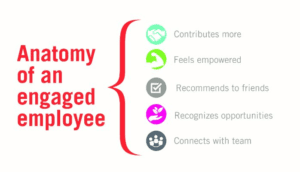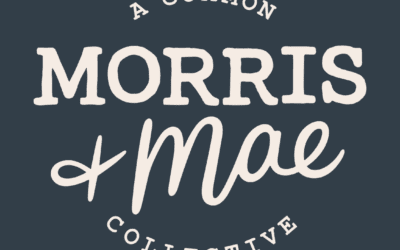After you learned about everything from her crossword puzzle addiction to her passion for wakeboarding, she finally said yes. In two weeks, you’ll be able to call her a member of your team. Underneath your excitement, however, you’re racked with anxiety. If there’s any truth to the articles you’ve read about retaining Millennials (roughly those people born between 1981 and 1996), she could leave your company before the year ends.
Employee retention is a particularly frightening subject for your mortgage business. You invest a tremendous amount of time, energy and resources to get a new employee to a point where they can contribute. If they leave within twelve months, there will absolutely be no return on that considerable investment. There are strategies that you can employ to combat Millennial turn-over, but how do you make certain that this issue doesn’t consume all of your time and energy?
Growing the company, making money and observing the financial markets also demand considerable mindshare and attention. Obviously, there is very little that an executive can do about the impact that volatile macro financial markets have on mortgages companies all over the globe. But is there something that might provide an executive with a discriminator that will enable them to achieve profitable growth where others struggle?
A solution to the Millennial retention problem and profitable growth problem for a mortgage company, is the implementation of an employee engagement strategy.
Why an employee engagement strategy?
Employee retention cannot be an afterthought. Harvey Mackay would say you must dig your well before you are thirsty. Implement an employee engagement strategy today if you hope to engage and retain the workforce that you hire tomorrow.
There have been numerous surveys conducted and research studies performed on the topic of retaining Millennials. For example, Facebook has performed a tremendous amount of research on their largely Millennial workforce and users. The three things that consistently show up as most important to their Millennials at work are meaning, flexibility and challenge. The majority of research includes those three elements, and adds a fourth – stability. Accordingly, these four elements should be a part of a successful Millennial (or and generation) employee engagement strategy:
- Stability
- Meaning
- Flexibility
- Challenge
Stability
A 2015-2016 report by Infosys and the Future Foundation published survey results that show that Millennials, in particular those who are 16 to 25, are anxious about their jobs. Many don’t want to work for a startup. The common response in the survey was that they don’t like the risk and excitement anymore. They want the stability of a corporate job.
Infosys also found that 40 percent of Millennials think their job will be outsourced or replaced by a robot and other automation within the next five years. For example, if they work with database management they may wonder why the business hasn’t simply brought in an ipaas, or Integration Platform as a Service, package instead, and that creates an even greater sense of insecurity. This age group walks in the door with a dark cloud hanging over their heads. They tend to view a job as remarkably transient, and think that it will likely lead to another job within a few months or even weeks.
To address the Millennial need for stability, the mortgage company executive must come to grips with the fact that a 3-4 year “tour of duty” may be all that they can expect from the Millennial new hire. And that odds of retaining a Millennial for the “full tour” increases substantially when they receive training and development opportunities. The Infosys survey found that 80 percent of Millennials view training as incredibly important. It’s a driver for their success. They view their future at a company as wholly dependent on the skills they learn and the education available. If they are not constantly learning new skills, they will cut short their tour.
Closely tied to this idea of needing constant training is a desire to provide constant feedback. There is no “one size fits all” solution employee engagement. If you want to know what is important to your Millennials – ask them. It is important to gain real-time insight into how your workforce feels about issues like management, salary, benefits, work-life balance. With Millennials, there’s an expectation of inclusion and the ability to provide feedback.
The words “entitlement” and “expectation” are closely linked. In some ways, they are the same word. Millennials expect great things. They expect constant training and the opportunity to give feedback. Companies that fail to provide these things will experience a very expensive revolving door with their Millennials.
Meaning
A recent YPulse survey found that “76% of Millennials would rather have a career they are passionate about but doesn’t earn a lot of money than have a high earning career that they are not passionate about.”
This jives with my observations. It appears that for most Millennials if they don’t feel a personal connection to their work, they’ll see it as a temporary way to put food on the table and pay the rent while they look for something that’s more meaningful to them. If you’re feeling frustrated about your Millennial employees’ putting in just what’s asked and no more, it may well be that they’re not seeing anything in the job or the company that inspires their best efforts.
If you believe an employee has a lot of potential, but isn’t demonstrating it, work together to craft a job that will deeply engage his or her interest, and provide meaning. I’ve seen Millennials go from “not engaged” to “highly engaged”, once they were paired with work that they were passionate about doing well. Another important element is to make sure Millennial employees have a clear sight-line from what they’re doing to the success of the company. They want to feel a sense of connection to their company–to understand what the company does, and to like and believe in its services or products–and, just as important.
This desire to find meaning in their work is part of what leads many executives to tag millennials as “entitled.” Many Baby Boomer executives continue to operate under the assumption that Millennials should be happy to have a good job. I heard it expressed this way: “You can think all you want that Millennials shouldn’t be obsessed with finding meaning in their work, but that won’t change the fact that they are obsessed with it. Companies that acknowledge this, and act accordingly, will have the best chances at engaging and retaining their employees, both young and old.”
Requiring flexibility
A top priority for employers should be flexibility. These days, companies are founded and structured differently than they were in the past. There is remarkable diversity in terms of what different companies need to be successful. Therefore, every single company does not need to follow the same guidelines. If it’s feasible for employees to rotate to a different team or assume more responsibilities, don’t neglect to tell them that.
In previous generations, employees had to be in the office from 9 to 5, for example, because teams could only work together when everyone was in the same place. With so many modern technologies that allow employees to communicate remotely, however, team members can still work together in different locations. Millennials have likely heard about companies that allow employees to negotiate their work hours as long they still finish all of their work. If you aren’t one of those companies, you may fall behind.
When it comes to work-life balance, few topics are more divisive among employees and management than the issue of workplace flexibility, especially if you are a Mom (or Dad) trying to juggle the pressures of parenting and want to move up the ranks to an executive. Keeping the whole workforce happy can be difficult, especially as this new workforce has lots of demands, but with the help of Deputy workforce management software, managers can make it work. Listening and understanding what your workforce actually wants is key.
In fact, when More magazine asked women in 2011 the following question:
If you could have one of the following which would you pick?
- A promotion
- A raise
- Another week of vacation
- Flexibility in your day
The overwhelming response was flexibility during the day!
“Seventy-five percent of college-educated women aged thirty-five to sixty would rather have more free time in their lives than make more money at their jobs. In fact, 40 percent would even take a pay cut for more flexibility.”
Workplace Flexibility is the new normal in the American workplace, especially when almost 40% of the US workforce works from home and 15% of these employees are working full-time, according to Gallup.
Given the immense benefits of being able to cut down on commute time, tailor your own work schedule and also put in more hours of being engaged on the job, it is critical for companies to not just fully embrace telecommuting but also offer up workplace flexibility if they want to retain their talent – especially female employees.
So, what can executives do to provide more workplace flexibility to their Millennial and/or female employees in order to increase employee retention?
This is another place millennials get tagged as “entitled” or “unrealistic.” Because they see work as an integral part of the life they’re trying to build for themselves, they — unlike previous generations — are largely unwilling to let the demands of work negatively impact the life they want. The same YPulse survey referenced earlier noted that “77% of millennials feel they can be more productive with flexible schedules and 84% are ‘always connected’ and continue to check their work email after leaving for the day. They want to be trusted to get the work done but they’ll do it when they feel the time is right.”
Organizations that want to attract and keep the best Millennial and/or female workers, may have to re-think their policies about when and how work gets done. They must be willing to try out new approaches to getting the business results that the organization needs.
Wanting challenge
One of the big complaints that Boomers have about Millennials is that they have unrealistic expectations about career progression. The fact of the matter is, Millennials are looking for a challenge, and it is the job of their manager to help them understand what challenges are realistic for them to take on at their level. When a manager takes the time to define reasonable challenges for their Millennial team, they can take advantage of the fact that most millennials are open to feedback — and they want it to be really clear and specific.
Millennials truly are the generation that thinks the grass is always greener on the other side. To keep Millennial employees invested in the company, show them that you are investing in their future. Make sure they have a path and give them insight into how their role will evolve. If you’re a smaller mortgage company, for example, perhaps you don’t necessarily know the exact appearance and direction of their path. As their manager, show them the inherent advantages of a small company. Let them know that in a small company, they can often build out their own team, be a part of a fast-growing industry, and take on more responsibility early on.
When a Millennial says “why can’t I get promoted now?” they actually really want to know. Tell them the specific ways in which they’ll need to do their current job better; help them create a plan to learn the new skills they’ll have to develop, and outline just what senior management will expect to see from them that they are not currently seeing. In most instances, they will be satisfied, and they’ll get to work on those things.
Implement an engagement strategy that focuses on providing jobs with stability, meaning, flexibility and challenge, and you will experience Millennial (all employee) retention and profitable growth. The following graphic high lights the return on the investment.
When disengaged employees are compared to engaged employees, the difference can make or break a company.
 Engaged employee yield :
Engaged employee yield :
3X growth in profits
2X growth in customer loyalty
2X growth in productivity
2X less turn-over
Conclusion
Both of my kids are also Millennials. Their friends, and the spouses of their friends, are Millennials as well. A great many of the employees in my client companies are millennials. These young employees now make up 35% of the U.S. workforce and are predicted to be close to 50% of the worldwide workforce in 10 years. Over the past decade, as they’ve moved into their working, buying and household-forming years, Millennials have become a potent force in the marketplace.
The Millennials are here! This is the game that is on the calendar, so we may as well play it. A well-thought-out strategy that increases the engagement levels of the Millennial workforce will pay tremendous dividends. The elements that increase Millennial engagement will increase engagement levels across the enterprise for all generations. This is how a company can maximize the impact of their employees and experience extraordinary business results in the process.



0 Comments